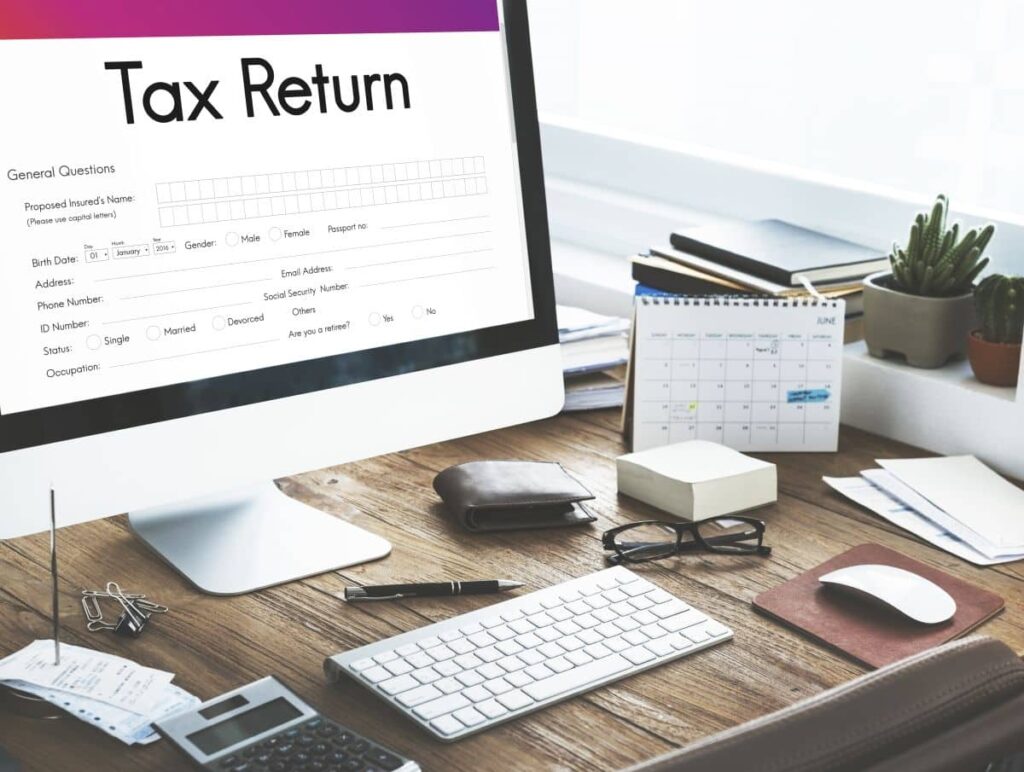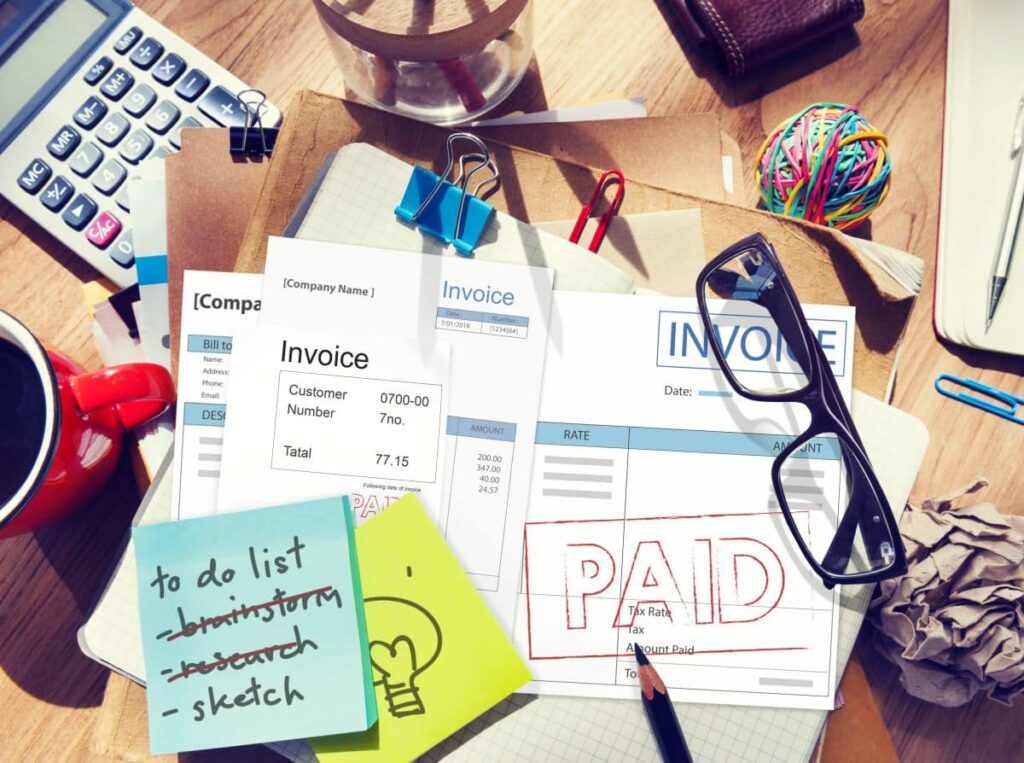Are you looking for smart ways to reduce your taxable income and save more money? With taxes taking such a huge chunk of our paychecks, making ends meet can take a lot of work. But luckily, there are proven strategies that can help us lower our taxable income and put more cash in our pockets!
In this blog post, we'll explore different tips and tricks on how you can use every available resource to reduce the amount of tax you owe without sacrificing your current lifestyle or future goals. So read on to discover how you can leverage the power of tax deductions, credits, investments and more — all while legally reducing your taxable income!
Let's get started!
Simple (And Perfectly Legal) Tax-Saving Tricks
You can avoid having to make unneeded tax payments at the end of the fiscal year by getting a head start on a few items right away and getting them underway.
Don't forget to think about each of these in the context of your entire financial condition, your ambitions, and your constraints. Then, if you need clarification on them, you should talk to a tax accountant about them.
- Prepay deductible expenditures. You can lower the amount of revenue subject to taxation by paying your costs within this fiscal year. Less revenue means less tax.
- Take advantage of the reduced rate of tax on capital gains. When an asset is sold, the money that is made is referred to as a capital gain. Because a profit is considered to be income, taxation is something that must be paid on it. Individuals, trusts, and superannuation funds may all be eligible for discounts, but it is imperative that they plan ahead.
- Please start your own business, as companies are considered to be independent legal entities from their owners and are, therefore, subject to various tax rates, which are frequently lower than those applicable to people.
- Create a trust to reduce your tax liability and to safeguard your assets. There are several different kinds of trusts, each of which has its own unique set of advantages.
- Ceate your own self-managed retirement account (SMSF). You can save money on fees and reduce the amount of tax you pay on contributions and investment income. Make the most of the one-of-a-kind tax-effective investment techniques that are only available to self-managed super funds.
- You can get reimbursement for your car costs by keeping a track of all the kilometres you drive for work-related reasons.
- Make use of the negative gear. Your taxable income can be decreased by using negative gearing strategies. It compensates for the losses that are incurred when the income obtained from an investment property is lower than the expenses of maintaining the property and repaying the loan.
- Contributions to superannuation as part of a salary package. By contributing some of your salaries to a retirement account, you can lower the amount of income that is subject to taxation.
- Plan ahead. You will not be caught off guard by any unexpected increases in your tax liability at the end of the year if you have a tax strategy that has been carefully planned out. Avoid spending more money than is absolutely necessary.
Tips to Help Reduce Your Taxes
1. Put Some Money Into Your Retirement Account
This first approach is possibly the simplest and fastest way to reduce the amount of tax you have to pay. However, it is more accurate to refer to this practice as salary sacrificing or salary packaging, which means that you contribute a portion of your income before taxes into your retirement account.
The most important thing to do is to check that you have completed this step before you are subject to taxation. Therefore, the plan is for you to forego some of your pre-tax earnings before you really receive it.
When you sacrifice part of your income, you are effectively switching the tax rate that applies to your income with the tax that applies to your contributions to your retirement account.
The latter is lower, and it is typically 15% for the majority of individuals. As a result, if you believe you will receive an additional bonus payment at the end of the fiscal year, you might consider contributing that sum to your retirement fund rather than spending it.
Before the certification of your bonus entitlement, you must discuss the wage reduction with your company in order to avoid any complications. This nuance is essential since salary sacrifice only applies to future revenue and not to revenue that you have already earned in the past.
2. Keep Accurate Books with Money
You have been informed of this several times by the ATO. It is absolutely necessary to store all of your tax data in a secure location. In this way, you will be able to quickly access them whenever it is necessary, particularly when you are claiming deductions. Take advantage of this step even if it appears very easy.
When it pertains to tax deductions, the ATO has grown more inquisitive than it ever has been before. As a result, the very last thing you want to do is submit a claim, only to find out later that you have no evidence to back up your claim that you are entitled to the deduction.
Keeping an accurate record of the paperwork pertaining to your finances doesn't have to be difficult. Keeping track of your costs, downloading your statements, and organising your receipts into a single folder should only take you approximately ten minutes per week.
Expert financial planners often provide personalized advice to align with your unique financial situation
3. Obtain All Allowable Deductions
Every year, countless individuals in Australia throw away the chance to save cash by failing to submit their tax deduction claims. This means that the ATO receives millions upon millions of dollars, which the people may really receive in the form of tax refunds. They do not even keep financial records, which is one of the reasons for this situation.
They also believe that their expenditures are relatively inconsequential and that it is okay to forego taking deductions for them. However, the fact of the matter is that even modest sums have the potential to accumulate over the course of a year and result in significant cost reductions.
Accordingly, if you end up spending on anything that is in some way connected to your job or the manner in which you obtain your earnings, you should make sure to claim all of the deductions to which you are perfectly permitted.
Therefore, to reduce the amount of tax that you owe to the Australian government, the first thing that you need to do is make absolutely sure that you've claimed all of your deductions.
There is no need for concern if you are still determining whether the product you have spent the money on can be reclaimed. Keep in mind that you can deduct it as long as it is relevant to your job and that you possess the receipt of the acquisition, which will make the process of deducting it much simpler.
4. Be More Charitable

Act on your gut impulse if you're in the mood to give to charity. You are not only assisting organisations in their efforts to make the world a better environment, but you are also reducing the amount of money that you will owe in taxes. Any and all contributions you make are eligible for a tax deduction, provided that they satisfy the following requirements:
- You have contributed to a charity that is officially recognised.
- You have contributed a greater amount than two dollars.
- You have been provided with a receipt from the institution, allowing you to store it away until the next year's tax time.
Do not, however, add any donation receipts that you possess and put them into the "charity donations" area of your tax return when it comes time to file your taxes. This section may be found in your tax return.
Before you get too enthusiastic about getting a tax refund for your contributions, it is important to remember that you will only receive money back in the form of a tax refund.
The donations that you've made to charitable organisations will, in effect, be returned to you in the shape of a reduction in the amount of income that is subject to taxation. However, you will be rewarded monetarily for your kind actions. It's a win for both sides.
5. Get Out From Under Your Loan, But Don't Lose Sight Of Your Investments
Are you aware that you may reduce the amount of tax you owe by using an account that offsets your loan? If you already have a home loan, it will work for you.
If you have a mortgage offset account, you have the ability to reduce the amount of interest that you pay on your home loan that is not tax deductible by trying to take advantage of the interest that is earned on taxable income that is deposited.
Because of this system, taxpayers in Australia are able to open savings accounts with their respective lenders. The main distinction is that you will not be responsible for paying interest on the complete amount of the loan.
Rather, the interest on the mortgage will be paid for out of the cash you have saved, after which you will be eligible for deductions.
It is to your advantage to pay your mortgage off as quickly as possible because you will avoid paying taxes on the cash that you have just spent.
This excess is even available to be withdrawn through the facility provided by your account for doing so. It will come in handy in the event that you need additional money in the future.
In the meantime, if you have made any kind of investment or purchased property, this can have an effect on your taxes, whether positive or negative.
Therefore, whenever you invest your money, you should ensure that you have a thorough understanding of both the potential gains and losses. Even if you think you are an experienced investor, you must consult with a financial planner at some point.
Your investment ought to be able to create revenue for you both now and in the years to come. Therefore, you should not invest or refrain from investing for the sole purpose of lowering the amount of cash you owe in taxes.
6. Be Aware Of The Types Of Income That Are Exempt From Taxation
The Australian Taxation Office (ATO) has established that certain earnings categories do not have to be reported or taxed in any way. Therefore, you must verify that the forms mentioned above of income are excluded from your tax return.
If you commit this mistake, the agency will regrettably consider the non-taxable income when assessing tax losses from earlier income years. Therefore, you must take the non-taxable payments as a deduction and make the appropriate adjustments to the taxable revenue of your dependents. The following are some examples of gains that are exempt from taxation:
- Individuals who are under the pension age are eligible for certain pensions offered by the Australian government, such as the special needs pensions offered by Centrelink.
- Government subsidies, grants, and other forms of financial assistance, such as childcare subsidies
- Costs associated with the Australian Federal Police or the Australian Defense Force
- Particular financial aid in the form of awards, grants, and scholarships
- Learners who are younger than 16 years old are eligible to receive financial assistance from the government in the form of education grants and allowances.
7. Work-Related Expenses That Can Be Deducted From Your Taxes
When looking at ways to lower taxable income, the very first place you should look is at the tax deductions that you are eligible for.
The Australian Tax Office (ATO) states that taxpayers are permitted to claim deductions for a variety of costs that are directly associated with their place of employment.
The following types of work-related costs are eligible for reimbursement to workers:
- costs for a home office;
- costs associated with one's own education;
- instruments, machinery, and various other assets; in addition to
- costs related to the car and the journey
8. Deductions on Your Income Taxes for the Cost of Managing Your Tax Matters
Are you aware that you're permitted to receive a tax deduction for the costs of hiring an accountant to assist you with the planning and filing of your tax return in addition to providing financial advice?
You have the right to make a claim for any tax-deductible expenses that you pay as a result of handling your tax arrangements in general, for example, for the following items:
- expenses incurred for travel in connection with obtaining tax advice;
- the costs of litigation;
- obtaining an appraisal to claim a tax deduction for a gift or donation of property; and
- any interest rates that the ATO mandates
9. Salary Packaging
Salary packing is another name for salary sacrificing, which refers to the process of making arrangements with your employer to convert a portion of your income into other advantages.
Therefore, in order for your company to pay for specific perks using the money that was deducted from your income before taxes, you are basically in agreement to earn a lower income after taxes.
Some examples of the advantages include the following:
- auto payments;
- reimbursement of loans;
- the cost of tuition for your kids;
- as well as the Fees for Home Phones
Example:
Ellen brings in a yearly salary of one hundred thousand dollars.
She negotiates a deal with her company to package her salary in such a way that she will get a total of $84,000 in revenue, of which $15,000 will be paid towards the purchase of a car and $1,000 will be paid towards various other costs.
As a consequence, Ellen's income, which is subject to taxation, has been lowered to $85,000; consequently, she will owe a lower amount of income tax.
10. Prepaid Expenses
Through paying part of your tax-deductible costs in advance, like the interest on an investment loan, you can lower the amount of annual tax that you are responsible for paying.
If you can pay for a portion of your costs in advance, not only will you not have to be concerned about paying them the next year, but you will also be able to deduct those costs from your taxes for this year.
Be aware, though, that if you do choose to prepay a portion of the tax-deductible expenses you have, the total amount that you prepay should not be more than twelve months in advance.
11. Private Health Insurance Tax Offset
A private health insurance rebate was created by the Australian Taxation Office (ATO) as an incentive for taxpayers with middle- to high incomes to minimise their reliance on the public health system and to help the private health sector become more self-sufficient.

The following are some of the requirements to meet in order to qualify for the tax offset:
- having the citizenship of Australia;
- possessing a taxable income that is less than $80,000 for a household of four or $140,000 for a single person;
- owning a health insurance policy that satisfies the requirements; and
- possessing a valid Medicare card
In addition to this, if you do not have private health insurance and have an annual income of more than $90,000 (singles) or $180,000 (families), you will be required to pay a Medicare Levy Surcharge of at least 1% of your income. This is on top of the mandatory 2.0% Medicare levy that the majority of individuals are required to pay.
Therefore, if you wish to skip the 1% surcharge and benefit from the tax refund, you might want to investigate the possibility of purchasing private healthcare insurance.
You can submit your request for the health insurance rebate in one of two ways:
- a reduction in the cost of your monthly premium; or
- you can make a claim on your tax return.
We recommend that you claim it through your tax return if you are searching for strategies to lower the amount of income that is subject to taxation.
12. Discretionary Trusts
The overall tax burden may be reduced if assets are moved into a family trust with discretionary powers.
The trustee has the power to make choices regarding the trust on their own accord, giving rise to the discretionary aspect of the arrangement. To put it another way, the trustee has the ability to use their judgement when it comes to deciding how the recipients should split the income and the principal of the trust.
For instance, a trustee is empowered to make payments to recipients of the trust who fall under lower tax categories so that they can take advantage of those reduced tax brackets.
Or, if the trust has any capital gains, such profits could be given to recipients who have capital losses or to recipients who are eligible for a discount of fifty per cent on their capital gains tax liability. There is a possibility that the end result will be a reduced tax.
Where To Get Help With Tax
The taxation of individual income can be difficult because each person's circumstances are unique.
Consider hiring an accountant to assist you in the management of your taxes and the filing of your tax return if you are interested in getting expert guidance.
1. ATO's Tax Help program
If your annual income is less than $60,000, you could qualify for the Tax Help programme offered by the ATO. Help with Taxes is a service that is offered every year from July through October and is completely free of charge.
Tax returns can be submitted electronically, over the phone, or in person at one of the many Tax Help centres situated across Australia with the assistance of ATO's qualified volunteers.
2. National Tax Clinic program
You might well be able to gain access to free help and guidance through the programme known as the National Tax Clinic if you aren't qualified for the Tax Help programme or if you require assistance with your tax returns from prior years.
The programme is an initiative financed by the government to assist individuals who might not be capable of paying for the services of a professional tax advisor. On the ATO website, you can look up the location of the tax clinic that is closest to you.
3. ATO Community and Tax time essentials
Through the ATO Community forum, you can enquire about tax matters of a more general nature. Alternatively, you can go to Tax time fundamentals on the ATO website to obtain advice regarding preparing your yearly return.
Frequently Asked Questions
- Take Advantage of Salary Sacrificing. ...
- Keep Tabs on Your Taxes. ...
- Manage Your Debt. ...
- Claim All Deductions. ...
- Pre-Pay Deductions. ...
- Donate to Charity. ...
- Max Out Your Retirement Account. ...
- Use Medicare Levy Surcharge and Private Health Insurance to Maximise Your Refund.
- Improving your deductibles. ...
- Minimising your capital gains tax liability. ...
- Establishing a family trust. ...
- Purchasing assets in your partner's name. ...
- Set up salary sacrifice for your super. ...
- Invest in a self-managed super fund. ...
- Structure a tax-effective business.














